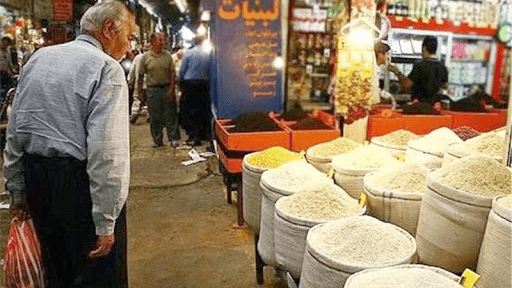Cost of living and energy crises spark street protests across Iran
From education to the oil industry, discontent is growing among workers, who are demanding better wages and working conditions. Declining energy and a poor economy are sinking prospects for recovery, in a country already affected by Western sanctions. The cost of essential goods and services has increased by up to 40 per cent in recent months. Pressure is growing on the Pezeshkian administration.
Tehran (AsiaNews) – In Iran, ordinary citizens are increasingly taking to the streets to protest, exasperated by the high cost of living, low wages, and general impoverishment.
Workers are demanding higher salaries and better working conditions, but the country’s energy and financial crises are undermining the government’s capacity to promote economic recovery, especially since it is also engaged in various Middle East conflicts – Gaza, Lebanon, Yemen – against the Israeli "enemy".
Recently, workers at the South Pars Gas Complex refinery in Asaluyeh, a nerve centre for Iranian natural gas production on the Persian Gulf, gathered to address grievances related to late payments and unsatisfactory economic conditions.
Some retired educators met in front of the presidential office in the capital, to continue demonstrations, which have become increasingly frequent in recent months.
Protesters voiced their frustrations, with banners highlighting the disparity between the Islamic Republic's wealth of resources and their economic hardships.
The oil and gas sector has increasingly replaced regular employees with contract workers, exposing them to precarious working conditions and inadequate wages. The workers are not only asking for raises, but also for better accommodation in dormitories and safety measures in the workplace.
“Tuesday's protests hold significant importance as workers from 12 refineries within the Pars Gas Complex united, demonstrating a powerful display of solidarity against the authorities," Sattar Rahmani, a workers' activist, told Iran International TV.
Nurses and healthcare workers have also staged protests, starting in August with a large-scale strike in about 50 cities and 70 hospitals. Their demands include higher wages, updated nursing rates, overtime pay, and welfare benefits.
Despite constant efforts, their grievances remain largely unheeded due to the government's significant budget deficit, which is estimated to exceed 50 per cent. Many workers in Iran survive on a monthly income of about US$ 200, not enough to meet daily needs.
In addition to these challenges, the Islamic Republic is facing a severe energy crisis. Last summer, repeated power outages halved industrial electricity supplies and caused widespread blackouts.
The signs of a serious gas shortage for the winter have set off alarm bells. In fact, growth in natural gas production slowed significantly, mainly due to the aging of the South Pars field, which is responsible for 75 per cent of overall production.
The decline, combined with US and Western sanctions limiting access to advanced technologies, has aggravated the situation, while the production growth rate in the last three years is a third of that of the previous decade.
According to a recent report released by the Iranian Labour News Agency (ILNA), the cost of essential goods and services has risen by at least 40 per cent in the last four to five months, with runaway inflation driving ordinary Iranians into an ever-deepening crisis, which goes hand in hand with the rising cost of living.
Higher inflation, combined with the lifting of government price controls have left families struggling, unable to afford housing, food, and utilities.
Iran’s Statistical Centre recently reported that urban rental prices jumped by about 42 per cent in the 12 months leading up to November 2024, over the same period a year earlier. In November alone, rents rose by 3 per cent.
“This level of inflation is unprecedented in the entire history of Iran,” said trade union leader Faramarz Tofighi stressing the seriousness of the current crisis. For him, “the collapse of working families into the black hole of the livelihood crises", with the government unable to do much about it so far.
“We have significant imbalances in water, electricity, gas, and the environment – some of which are on the brink of disaster," President Masoud Pezeshkian said on 22 November, acknowledging the gravity of the situation.
The soaring cost of basic goods has forced many to cut back on essential expenses, including food and healthcare.
As the inflation-related crisis, long exacerbated by international sanctions and economic mismanagement, shows no signs of abating, the Pezeshkian administration is coming under mounting pressures to find solutions.
12/06/2020 17:36
01/12/2021 15:16







.png)










